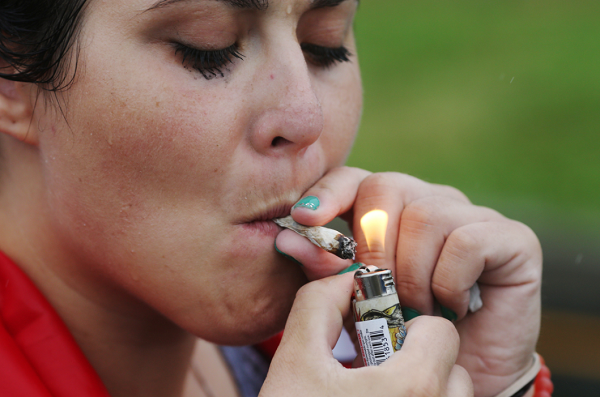10 Myths About Smoking Weed That You Should Stop Believing, From ‘Hold Your Breath’ To ‘Marijuana Is A Gateway Drug’

Marijuana has been at the center of controversy for years, praised as both a miracle drug and a gateway demon drug. In the U.S., medical marijuana has become legal in half of the 50 states; legal recreational use is also expanding. Undoubtedly, marijuana offers an array of benefits to human health, but the science behind its healing abilities tells us to err on the side of caution. Still, not everything you've heard about marijuana, good or bad, is true, and there are many big myths you should stop believing.
In the video "10 LIES You Were Told About Marijuana", host Matthew Santoro explains there is a stigmatization when it comes to weed, but he hopes to set the record straight. Drug warriors have been successful in instilling fear about the dangers of smoking weed, with false information about the effects of marijuana use. This had led to common pieces of misinformation that we've all heard and believe, that aren't true.
Read More: 3 Most Common Medical Marijuana Strains And Uses
One of the biggest lies about smoking weed is it's a "gateway drug" that leads users to try other, harder drugs, potentially ending up with something more risky. A 2014 survey by the National Institute on Drug Abuse found over 32 percent of American students of various ages had used marijuana, but only 1.8 percent had ever tried cocaine, and only 0.6 percent had ever used heroin. Users who've tried it several times did not build a tolerance for it, nor did most of them actively seek other harder drugs.
Weed smokers have spread misinformation, too — for example, that holding in smoke for as long as possible gets you higher by allowing the lungs to fully absorb THC. However, a study conducted at the University of Chicago found any THC inhaled by the lungs is absorbed in the bloodstream instantaneously. The time taken to inhale deeply and exhale only deprives the brain of oxygen, and this lack of oxygen is what confuses people to feel higher.
The truth is weed has gotten a bad reputation for years, but science has just begun to explore the infinite options of this plant — both good and bad.
© Copyright IBTimes 2025. All rights reserved.





















